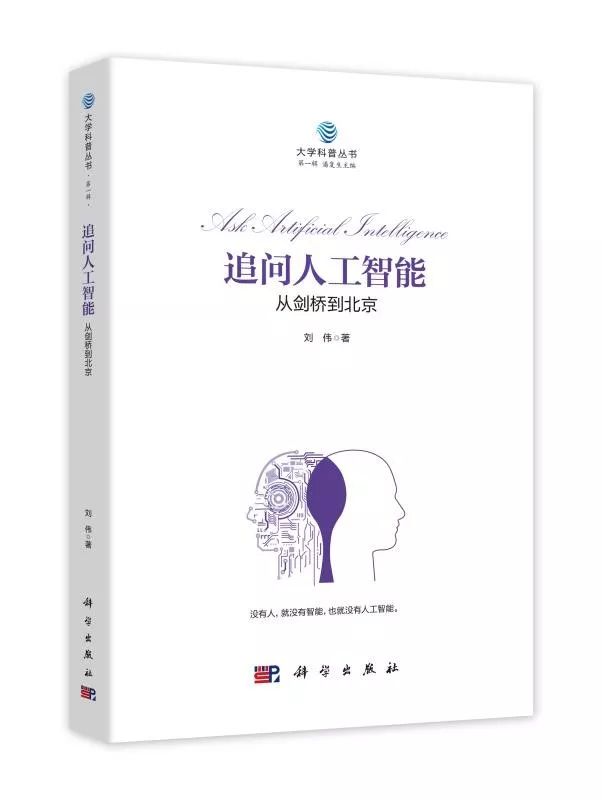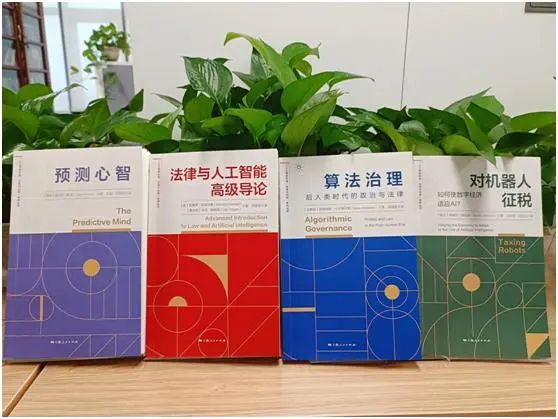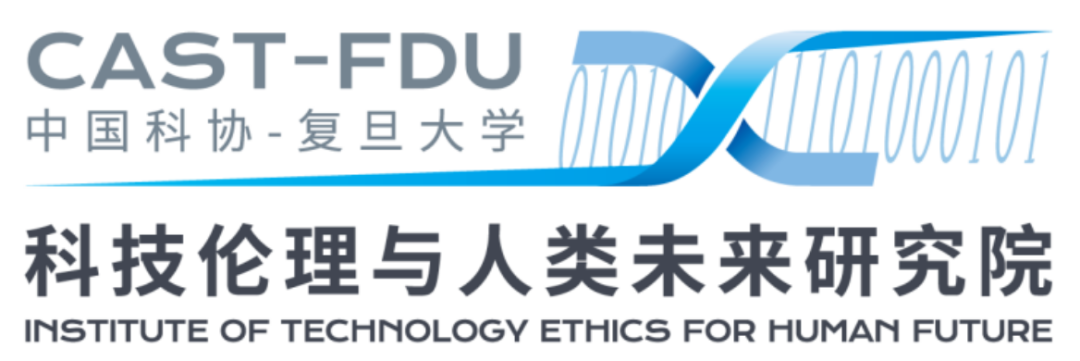Many New Books Focus On The Ethics And Legal Issues Of Artificial Intelligence︱read
Many New Books Focus On The Ethics And Legal Issues Of Artificial Intelligence︱read
"Intelligent Social Governance Series" Editor-in-chief Liu Shuyan, Shi Qian and Chen Jidong At this year's Shanghai Book Fair, many new books focused on issues such as "Intelligent Social Governance" and "Artificial Intelligence Ethics and Law" at this year's Shanghai Book Fair.
"Intelligent Social Governance Series" Editor-in-chief of Liu Shuyan, Shi Qian and Chen Jidong
At this year's Shanghai Book Fair, many new books focused on issues such as "intelligent social governance" and "artificial intelligence ethics and law", and thought and discussed the transformation of the governance paradigm of smart society from different angles.
"Artificial Intelligence Ethics, Law and Governance Series" Editor-in-Chief of Jiang Huiling Xu Gang Executive Editor
Philosophy and social science workers should actively participate in global governance
Shanghai People's Publishing House has carried out in-depth cooperation with Tongji University and successively launched the "Intelligent Social Governance Series" and the "Artificial Intelligence Ethics, Law and Governance Series". It not only focuses on the cross-research of the field of artificial intelligence and disciplines such as law, political science, and sociology, but also has in-depth thinking on issues related to ethics, law, and governance in smart society, laying a solid foundation for promoting the core content and important guarantees of Chinese-style modernization of intelligent social governance.
At the new book sharing session, the editors of the two series of books introduced the planning background of the series and the subsequent research directions. Liu Shuyan, editor-in-chief of the "Intelligent Social Governance Series", believes that artificial intelligence naturally contains the technical ideal of "assisting humans, increasing benefits, and caring for humans", but its governance situation contains complex judgments on ethical, moral and value boundaries. Faced with the "new opportunities" brought by current industrial transformation and the development of new technologies, philosophy and social science workers should actively participate in global governance, focus on the latest cutting-edge progress in intelligent social governance and the national master plan, promote innovation in results through concept innovation and institutional innovation, and form a powerful driving force to promote the innovative development of Chinese modernization.
Xu Gang, executive editor of the "Artificial Intelligence Ethics, Law and Governance Series", introduced that the series mainly focuses on research on legal, ethical, security, governance and social issues related to artificial intelligence, and its content covers multiple disciplines such as philosophy, law, economics, management, sociology, and intelligent science and technology.
The author representatives of the series made their own new books at the event site. The "Collection of Ethical Cases of Artificial Intelligence" focuses on the core ethical issues caused by artificial intelligence, integrates various materials such as academic papers, news reports, etc., and classifies and collects more than 30 real representative cases of artificial intelligence ethics that have occurred in recent years, analyzes the causes and manifestations of ethical risks, as well as the lessons learned to avoid or prevent ethical risks, and finally draws conclusions or makes suggestions. The author Du Yanyong put forward three views: First, the goal positioning of philosophy and social sciences should match the level of natural sciences of artificial intelligence; Second, scholars of philosophy and social sciences should demonstrate a sense of responsibility; Third, natural science is a double-edged sword that coexists safety and danger. It should be people-oriented, promote artificial intelligence to be good, and promote the good development of artificial intelligence social governance.
"Intelligent Revolution and Rider Future" starts from six perspectives of Shanghai Digital Delivery workers' work status, social mentality, social integration, social mobility, labor process, and labor relations. It specifically explores the group portrait, work status, work demands, conceptual mentality, career development and social support of Shanghai Digital Delivery workers, and further looks forward to the profound impact of the intelligent revolution on this group, as well as its future career identity transformation and career development direction. Author Ge Tianren believes that in the process of intelligent social governance, we should pay attention to the special group of digital delivery workers. They are not trapped in digital algorithms, but in life algorithms. Faced with employment substitution in new business formats such as unmanned delivery and low-altitude economy, where is their future? This requires the understanding, respect and support of the whole society.
"Research on Legal Responsibility for High-Level Self-Driving Vehicles" combines the technical characteristics of intelligent connected vehicles and the business model of the development and application of intelligent connected vehicles. From the macro perspective of digital transportation change, referring to the extraterritorial legislation such as Germany and Japan, on the basis of analyzing the factors affecting the allocation of legal responsibilities, the principles and models of the allocation of legal responsibilities of autonomous vehicles are discussed from both civil and criminal aspects. Author Chen Jidong believes that the policy and system design related to artificial intelligence technology needs to balance the relationship between safety and development. Since autonomous driving does not involve single-time vehicle-road cloud network coordination, it is a global smart space construction, it opens the horizon for the digital transformation of the entire urban area and lays a solid foundation for intelligent social governance.
"Design Governance" is a monograph that is constructed based on the theoretical system of contemporary Chinese design and conducts a comprehensive study of artificial intelligence design from the perspective of design governance theory system. It is also a monograph that conducts case-based research and construction of the theoretical system of modern Chinese design. This book starts with the design governance theoretical system, focusing on investigating and explaining the core values, architecture, academic realm, cultural implications of the construction of China's independent artificial intelligence design governance theoretical system. China's independent artificial intelligence design governance theoretical system is part of national governance theory and an important part of design governance in social design. It is conducive to the improvement of artificial intelligence design order and is of great value to solving China's independent artificial intelligence design governance problems and constructing China's contemporary design governance theoretical system. Author Zou Qichang believes that without theory, artificial intelligence is difficult to move forward, and we should face difficulties and conduct in-depth research on design theories and prepare for the future development of strong artificial intelligence.

"Research on Generative Artificial Intelligence Crime" by Liu Xianquan Shanghai People's Publishing House
Beware of the criminal risks of generative artificial intelligence
Liu Xianquan, a meritorious professor of East China University of Political Science and Law and dean of the Institute of Criminal Law, was also released at the same time.
In 2018 and 2019, Professor Liu Xianquan published "Artificial Intelligence: Challenges in the Era of Criminal Law" and "The Criminal Law View in the Era of Artificial Intelligence", leading and promoting the direction of domestic research on criminal responsibility for artificial intelligence.
This year, Professor Liu Xianquan once again focused on the field of artificial intelligence crime, conducted in-depth research on the criminal liability of generative artificial intelligence and its possible copyright crimes and data crimes, and launched the "Research on Generative Artificial Intelligence Crimes" and "Research on Criminal Law Research (Volume 16) - Research on Criminal Responsibility Issues in Generative Artificial Intelligence", which is of great significance in the field of generative artificial intelligence research.
During the lecture, Liu Xianquan first focused on the social changes triggered by the four industrial revolutions in human society and explained the concepts and technical characteristics of generative artificial intelligence. Secondly, Liu Xianquan discussed the criminal responsibility subject theory and the qualifications of criminal responsibility subjects from the perspective of criminal responsibility. Again, Liu Xianquan analyzed copyright crimes and data crimes that may be involved in generative artificial intelligence, and discussed issues such as the legal attributes of generative artificial intelligence creations, the legal basis for protecting generative artificial intelligence creations, and the system construction of generative artificial intelligence creation protection mechanisms; he outlined the crimes involving generative artificial intelligence data, and proposed corresponding criminal regulation paths after sorting out the criminal regulation dilemma involving generative artificial intelligence data crimes.
Finally, Liu Xianquan said that criminal law research should follow the trend of the times, estimate the criminal risks caused by generative artificial intelligence in advance, explore reasonable risk response methods, and clarify the criminal responsibility path for generative artificial intelligence in advance. As the leader in the development of criminal legislation and criminal justice, criminal law scholars should establish forward-looking criminal law concepts and make sufficient risk prevention and control preparations.
(Compiled by Li Xu, reporter of Changjiang Daily)





